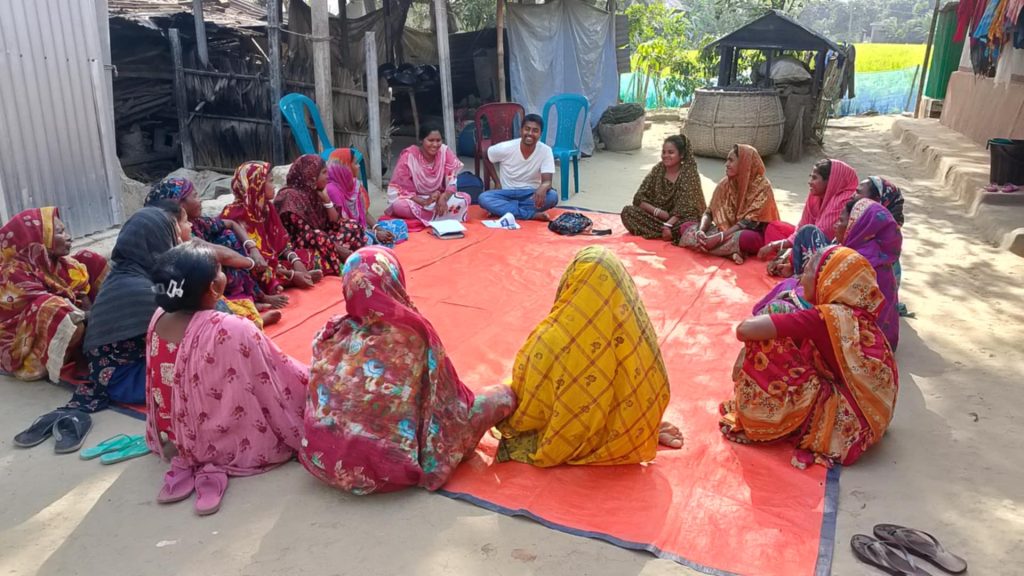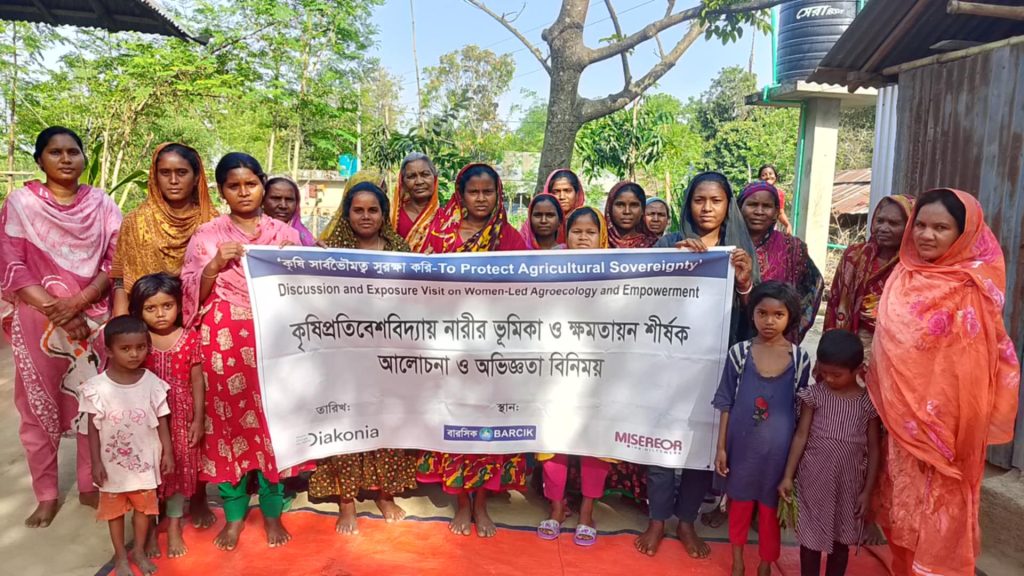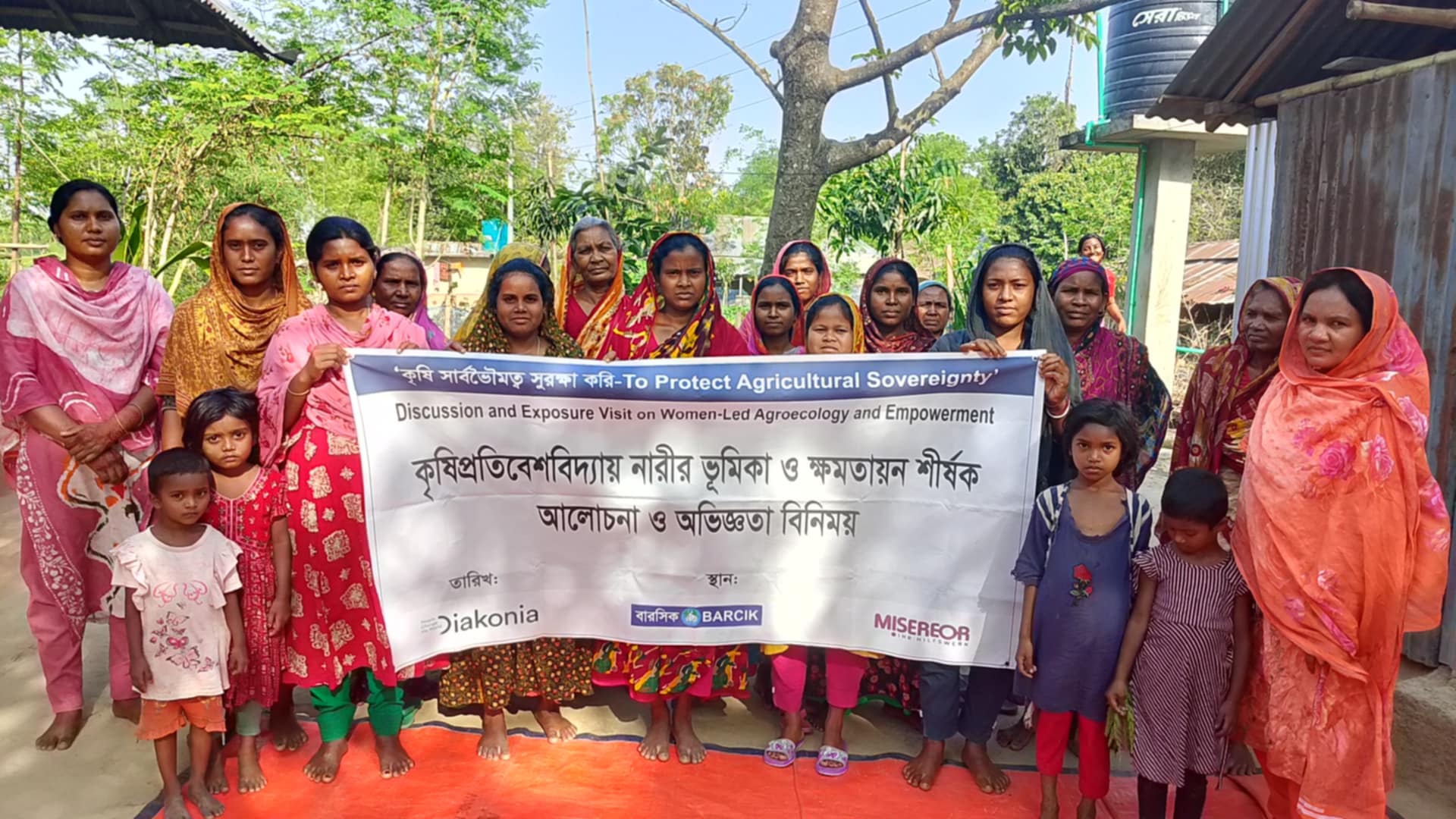By Rina Mahali from Rajshahi
A discussion and experience-sharing meeting on agroecology and women’s empowerment was held at the Jogisho Indigenous Women’s Development Organization in Jogisho village, Panchandar Union, Tanore Upazila of Rajshahi district.

Key topics of the discussion included: ways for women to build their capacities through self-development, promoting small learning initiatives and raising awareness on issues like saving and expanding diverse vegetable seeds, encouraging village women to engage in diverse vegetable cultivation, and strategies to boost production for improved family income and the importance of safe, chemical-free farming practices and producing vermicompost in every household was emphasized.
The participants in the meeting also planned to establish a “Diverse Seed House” in the village to promote seed conservation and exchange among local women, inspiring nearby villages as well.

Tithi Soren, a model Shatobari member, shared her experiences with safe vegetable cultivation, seed conservation, and vermicompost production. She said, “It has been five months since I started making vermicompost. Using this, I grow safe vegetables without buying chemical fertilizers or seeds from the market. I collect seeds from my own vegetables for storage and exchange.”
At the end of the meeting, everyone agreed to set up the Seed House and commit to conserving and exchanging their seeds. Participants also visited Tithi Soren’s vermicompost setup to learn about her methods.

